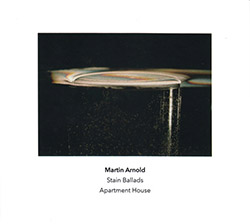
The UK Apartment House ensemble perform four chamber works or lyrical ballads of slowly meandering melody, referenced as slow dances, by Toronto composer Martin Arnold: "Lutra" for solo cello & humming; "Stain Ballad" for a sextet of strings, piano, reed organ & percussion; "Trousers" for violin & cello; and "Slip" for cello, violin, bass clarinet & piano.
Out of Stock
Quantity in Basket: None
Log In to use our Wish List
Shipping Weight: 3.00 units
Sample The Album:
Martin Arnold-composer
Anton Lukoszevieze-cello, humming
Kerry Yong-organ
Simon Limbrick-percussion
Philip Thomas-piano
Bridget Carey-viola
Gordon MacKay-violin
Hilary Sturt-violin
Mira Benjamin-violin
Heather Roche-bass clarinet
Mark Knoop-piano
Click an artist name above to see in-stock items for that artist.
Label: Another Timbre
Catalog ID: at166
Squidco Product Code: 29862
Format: CD
Condition: New
Released: 2020
Country: UK
Packaging: Cardboard Gatefold
Recordedat St Paul's Hall, University of Huddersfield and Goldsmiths Music Studio, September 2019 to August 2020, by Simon Reynell.
Another Timbre Interview with Martin Arnold
First of all, the disc title: what are 'Stain Ballads', and are the four pieces on the CD connected in some way as examples of the same genre?
I don't think it really constitutes a genre, but 'Stain Ballad' could apply to all the music I write. In the interview I did for Another Timbre's Canadian Composers Series (published in the accompanying booklet), I talk about George Bataille's definition of 'formless'. As part of this I say: "Bataille locates [the formless] in phenomena like spit or squashed spiders: both are disparaged and are kind of abject examples, but both also defy any sensible formulation of form and content-every gob is uniquely its own gob-shape, and a squashed spider is exactly what it is. Bataille puts forward the possibility of thinking the universe as if it were spit or a spider, a universe that 'resembles nothing.'" Like spit and squashed things, stains are also radically specific - always stain-shaped. They might remind one of something - like when one looks at the inkblots of a Rorschach test (though significantly, they don't have Rorschach's added symmetry) - but they don't present a form, a coherent outline, a generic structure that can be abstracted and distilled; with a stain, form and content are the same thing. My work continues to aspire to that condition.
There are number of ways that the word 'ballad' could be applied to a lot of the music I make - clearly, I'm devoted to lyrical (if endlessly meandering) melodies, slow melodies that invoke a kind of vague, indistinct sentimentality. But it's significant to me that the word 'ballad' comes from the from Old French balade, from Provençal balada 'dance, song to dance to', from balar 'to dance'; I've always maintained that all the music I make is in some sense dance music and I'm sticking with that.
So sure, every piece of music I make is a stain ballad.
Both 'Stain Ballad' and 'Slip' feel interestingly off-kilter, like slightly drunk dance music, sounding - as you put it in the interview in the Canadian Composers Series booklet - "like (they were) recorded underwater in a Methadone clinic." Is this still your aspiration?
First off, I really need to emphasize that the imagistic thought experiment that is "underwater in a Methadone clinic" comes from the American music producer Moby, and that he came up with it during an interview in relation to the Flamingos' amazing 1959 recording of "I Only Have Eyes For You". It's much more apt in that context (and if you haven't heard the Flamingos' amazing 1959 recording of "I Only Have Eyes For You", you must!), but I do continue to aspire to the magical, fluid, floating, relaxed disorientation it implies.
And, of course, I'm happy you hear Slip and Stain Ballad as dance music. I'm also fine with "off-kilter" and "slightly drunk"; I'm all for the way that music can put one in a more-or-less altered state, the way it can change one's mind, the way it can disorient and disturb the solidity, the security, of one's perceptual and conceptual balance. Slip takes its name from the Irish slip jig - a jig that's in 9/8 instead of 6/8 (kind of an amalgam of a jig and a waltz) - but certainly, I also wanted the title to invoke the unintended, uncertain movements that can arise from one one losing one's footing. Slip was the first piece I wrote completely in 9/8; for the last number of years everything I write is in 9/8 (I wonder if I should get over that....).
To me the way the violin and cello are played in 'Trousers' recalls folk music, which I know is an area that you are very interested in. Could you tell us a bit about your fondness for folk, and how it connects (or doesn't) with the more classical side of your music?
MA: That's interesting: I don't really think of the playing techniques in Trousers as being folk-like per se; a lot them could be considered special effects: bowing with the wood of the bow throughout; using multiple mutes - mutes under mutes - made of different materials; the sliding between pitches. But I guess there are a number of aspects to how these techniques are implemented that could bring various versions of folk music to mind. For one, I don't use them as special effects; these techniques define the sound of the music throughout; there is not much in the way of broad sonic variety used in the service of dramatic juxtapositions and quasi-narrative shifts in mood (though there's lots of fine differences discernable within sonic details). And the sound of Trousers is certainly at odds with a "good" Classical sound: I shut down projection, fullness of tone, resonance, the consistency, stability and predictability of the sound being produced, and so on. When I think of the sound of instruments within the context of "folk" I feel encouraged to focus on the specificity of that sound - its texture, its viscosity, at times its rough edges and/or its precariousness - rather than to evaluate its general qualities and rate that evaluation within a hierarchy, favouring the qualities that evince through cultural convention the higher, more refined class inherent in the term "Classical". Anyway, I want my music to encourage one to listen in a way that focuses on detail, on particularity; I'm concerned with the specificity of experience rather than evaluation. It seems to me that one of the defining features of aristocratic/bourgeois European music of the 18th and 19th centuries - the standard repertoire of what gets called Classical music - is the way it emulates aristocratic/bourgeois European narrative and drama, the way that again, through cultural conventions, it asserts the idea that the composer has something to say, that that something is important, and that music is only medium through which that something can be truly expressed. My music doesn't seek to take part in this emulation (nor, by the way, do most of the traditional folk musics that inspire me).
More than anything, what I get from the European Classical tradition (besides harmonic and melodic practices I largely absorbed filtered through films, the Brill Building and Laurel Canyon) is a version of music notation. I try to make use of the distances (sonic and temporal) that notation affords to wonder about possibilities (sonic and temporal) that wouldn't arise through other ways of making music. I don't prefer these possibilities or think there's anything intrinsically better about them versus those that occur through other kinds of music-making. But they are specifically different.
And what about 'Lutra', the cello solo? First, what does the title mean, and secondly, am I wrong in feeling that this piece is a little more 'classical' than the others?
Lutra is a genus of otter that covers most Eurasian otters; I think it works well as a title. I certainly wouldn't say that feeling Lutra is more 'classical' is "wrong" but I don't really know what you mean. I hope you don't think it sounds more aristocratic/bourgeois. To my ear it's a stain ballad, another slow song to be danced to. In terms of how they were composed, all four pieces ask specifically different questions, but conceptually, Lutra isn't more different than any of the four are from each other. But that's all moot. When I'm drawn into discussions about various impressions that listeners might have about a composition I've written - discussions I inevitably find fascinating! - I often recall some observations Georgina Born makes in her essay "Listening, Mediation, Event": "[B]y producing particular engagements, confrontations or combustions between musical objects and subjects [...] musical experience can generate affect and create transformative effects. Such effects are not universal but fragile; they can never be assured. In this sense musical experience can take the form of an event, one that effects transformations in the object-subject relation - in the assemblage. To borrow from literary theory, such an event might be conceptualized as involving 'an indeterminate ''sharing'' between writer and reader'. This is an encounter in which 'the writer and reader do not share an intent posited originally with the writer; they share their discontinuity [. . .]'".
Artist Biographies
• Show Bio for Martin Arnold "Martin Arnold is a musician based in Toronto. His notated compositions are performed nationally and internationally. Martin is also an active member of Toronto's improvisation and experimental jazz/roots/rock communities performing on live electronics, banjo, melodica, and guitar. Martin is the Artistic Director of Arraymusic and he lectures in the Department of Cultural Studies at Trent University and the Department of Art, Culture and Media, at the University of Toronto, Scarborough." ^ Hide Bio for Martin Arnold • Show Bio for Anton Lukoszevieze "Cellist Anton Lukoszevieze (born 1965 in the UK) is one of the most diverse performers of his generation and is notable for his performances of avant-garde, experimental and improvised music. Anton has given many performances at numerous international festivals throughout Europe and the USA (Maerzmusik, Donaueschingen, Wien Modern, GAS, Transart, Ultima, etc.etc.). He has also made frequent programmes and broadcasts for BBC Radio 3, Danish Radio, SR2, Sweden, Deutschland Rundfunk, WDR, Germany and ORT, Austria. Deutschlandfunk, Berlin produced a radio portrait of him in September, 2003. Anton has also performed concerti with the City of Birmingham Symphony Orchestra at the 2001 Aldeburgh festival and the Netherlands Radio Symphony Orchestra. He has collaborated with many composers and performers including David Behrman, Alvin Lucier, Amnon Wolman, Pierre Strauch, Rytis Mazulis, Karlheinz Essl, Helmut Oehring, Christopher Fox, Philip Corner, Alvin Curran, Phill Niblock and Laurence Crane, He is unique in the UK through his use of the curved bow (BACH-Bogen), which he is using to develop new repertoire for the cello. From 2005-7 he was New Music Fellow at Kings College, Cambridge and Kettles Yard Gallery. Anton is the subject of four films (FoxFire Eins) by the renowned artist-filmmaker Jayne Parker. A new film Trilogy with compositions by Sylvano Bussotti, George Aperghis and Laurence Crane premieres at The London Film Festival, October 2008. In November will premiere a new hour long work by Christopher Fox for cello and the vocal ensemble Exaudi commissioned by the Huddersfield Contemporary Music Festival and will also present new solo works for cello and live electronics. Anton is also active as an artist, his work has been shown in Holland (Lux Nijmegen), CAC, Vilnius, Duisburg (EarPort), Austria, (Sammlung Essl), Wien Modern, The Slade School of Art, Kettles Yard Gallery, Cambridge Film Festival and Rational Rec. London. His work has been published in Musiktexte, Cologne, design Magazine and the book SoundVisions (Pfau-Verlag, Saarbrucken, 2005). Anton Lukoszevieze is founder and director of the ensemble Apartment House, a member of the radical noise group Zeitkratzer and recently made his contemporary dance debut with the Vincent Dance Company in Broken Chords, Dusseldorf." ^ Hide Bio for Anton Lukoszevieze • Show Bio for Kerry Yong "Kerry is a musician who lives in east London. He trained as a pianist and now also performs on keyboards and live electronics. Kerry has performed at Audiograft, Chisenhale Arts Club, Kämmer Klang, Rational Rec, Borealis Festival, Huddersfield Contemporary Music Festival, ISCM World Music Days, Kings Place, City of London Festival, Music We'd Like To Hear, Nonclassical and in groups Apartment House, ELISION, Plus-Minus Ensemble and Ensemble Offspring. Kerry studied piano with Stephanie McCallum at the University of Sydney (where he also studied composition) and at the Sydney Conservatorium of Music. He completed a doctorate at the Royal College of Music where he studied piano with Andrew Ball and researched Performance practices of music for piano with electroacoustics. He has also dabbled with the other side, playing with bands Apopalyptics, Casiokids and Half-handed Cloud and the Welcome Wagon. Kerry also directs music at Grace Church Hackney (which meets in Hoxton), where they are happy to use ancient chants, traditional hymns and new works with choirs, bands, electronics, objects and the like." ^ Hide Bio for Kerry Yong • Show Bio for Simon Limbrick "Simon Limbrick's involvement in music embraces performance, composing and education.
He was a member of the cult systems orchestra The Lost Jockey and Man Jumping, recording for EG Editions and creating scores for leading dance companies, Second Stride, London Contemporary Dance, Rosemary Lee and Sue MacLennan. He has been in demand as a percussionist performing all over the world with the Nash Ensemble, Birmingham Contemporary Music Group, Endymion Ensemble, Composers' Ensemble and Fibonacci Sequence as well as recording with artists such as Alabama3, Gavin Bryars Pete Lockett and for Blue Note Records. He has been guest principal with the LSO and worked under conductors, Leonard Bernstein, Oliver Knussen, Simon Rattle and Tom Ades. He has featured on film and television including documentaries about Steve Reich and Kenneth MacMillan's award winning Judas Tree.Compositions created for him include works by Javier Alvarez, Brian Elias (Kenneth MacMillan's last ballet The Judas Tree), Vic Hoyland and Andrew Poppy. He has performed the world-premieres of solo pieces by James Dillon, Frederic Rzewski , Claude Vivier, Philip Cashian, Thea Musgrave, Harry de Wit, Howard Skempton, Michael Wolters and Ed Kelly. His solo performances have been broadcast by the BBC, RAI, Radio France, Dutch TV and radio. Recently, he performed his own concerto Bulls Yard and Stockhausen's Zyklus at the Sage, Gateshead,(see review) solo steel-pan in Brian Elias' Judas Tree at Royal Opera House, London, in 2010 and directed his mixed-media project, dot-machine, a web-based musical construction accessible on www.marimbo.com. He created a 24 hour long piece surfaces with the composer James Saunders, with financial assistance from the Arts Council of Great Britain and premiered at the Huddersfield Contemporary Music Festival in 2011. In education, Simon has led workshops since 1982, and been a returning resident artist in festivals and organisations, including Blackheath Concert Halls, Aldeburgh Music, Sound It Out , Spitalfields Festival. Workshop projects have been led by him throughout Europe. As a fully-qualified teacher, he has led Music and Performing Arts in Secondary Schools for five years. He has led school and community projects for Aldeburgh Music. As Artistic Director, he helped establish In Harmony Norwich, creating mixed-ability orchestral pieces for professional and young student players. Until the School of Music closed in June 2014, he was Director of 'Musician in the Community' and 'Creative Leadership' courses at University of East Anglia.
As a composer, Simon has gained an MA in Electroacoustic Composition from City University and collaborated as a composer on a number of large scale works, including a project at Fort Dunlop, Birmingham, with Rosemary Lee and site-specific work with Dutch composer/sound sculptor Harry de Wit in Holland and Brussels.He has produced film scores for TV and film festivals and composed music for theatre productions at the National Theatre and Royal Shakespeare Companies. Groups he has created pieces for include Mary Wiegold's Songbook, Roger Heaton Group, Ensemble Bash, Network of Sparks, Endymion Ensemble, Richard Durrant, Ritmatic, Hooloo. The Brighton Youth Orchestra performed machina lumina , for string ensemble and vibraphone throughout 2009. His composition Machine for Living for Landesmusikrat/Splash was recorded at Deutschlandradio. He has produced recordings for wergo and others.Currently composing a large piece for jazz brass and marimba. He has created the CDs, Steam, Hooloo, Clean, Ritmatik, Dot-Machine, Hammer, Rise and Fall, , between and Relay, which are frequently broadcast and available on well-known download sites. NEW RELEASE of a double CD RELAY, of contemporary steel-pan music in Sept 2014. Sound Composer for the film 3 Church Walk by the director Emily Richardson premiered on 18th Oct 2014 at The London Festival, BFI, London." ^ Hide Bio for Simon Limbrick • Show Bio for Philip Thomas "Philip Thomas (b.1972, North Devon) specialises in performing new and experimental music, including both notated and improvised music. He places much emphasis on each concert being a unique event, designing imaginative programmes that provoke and suggest connections. He is particularly drawn to the experimental music of John Cage, Morton Feldman and Christian Wolff, and composers who broadly work within a post-Cageian aesthetic. In recent years he has been particularly associated with the music of Christian Wolff, giving the world premiere of his Sailing By in 2014 and Small Preludes in 2009, the UK premiere of Long Piano (Peace March 11), having co-edited and contributed to the first major study of Wolff's music, Changing the System: the Music of Christian Wolff, published by Ashgate Publications in 2010, and currently recording all of Wolff's solo piano music for sub rosa. He is an experienced performer of John Cage's music, having performed the Concert for piano and orchestra with both Apartment House and the Merce Cunningham Dance Company as well as most of the solo piano and prepared piano music, including a unique 12-hour performance of Electronic Music for piano He has commissioned new works from a number of British composers whose ideas, language and aesthetic have been informed in some ways by the aforementioned American composers, such as Stephen Chase, Laurence Crane, Richard Emsley, Christopher Fox, Bryn Harrison, John Lely, Tim Parkinson, Michael Parsons, and James Saunders. In recent years Philip has pursued a passion for freely improvised music, after significant encounters with the music of AMM and Sheffield-based musicians Martin Archer, Mick Beck and John Jasnoch. He has worked with improvisers in a variety of contexts and recently devised a programme of composed music by musicians more normally known as improvisers as well as others who have been influenced by improvisation in some form. This led to a CD release, Comprovisation, which featured newly commissioned works by Mick Beck, Chris Burn and Simon H Fell. Other CD releases include music by Martin Arnold, Laurence Crane, Christopher Fox, Jürg Frey, Bryn Harrison, Tim Parkinson, Michael Pisaro, James Saunders, Christian Wolff, as well as with improvisers Chris Burn and Simon H Fell. Philip is a regular pianist with leading experimental music group Apartment House, with whom he has performed in festivals across the UK and Europe. He has also performed with the Quatuor Bozzini, and in duos with Mark Knoop, Ian Pace and John Tilbury (piano duet and two pianos) and James Saunders (electronics). In 1998 Philip was awarded a PhD from Sheffield University in the performance practice of contemporary piano music. Between 2000 and 2005, he was Head of the Sheffield Music School whilst pursuing an active performing and teaching career. He joined the staff team at the University of Huddersfield in 2005, and became Professor of Performance in 2015. Philip is one of the Directors of CeReNeM, the University's Centre for Research in New Music. He continues to live in Sheffield, where he premieres the majority of his programmes, with his wife Tiffany and children Naomi and Jack." ^ Hide Bio for Philip Thomas • Show Bio for Bridget Carey "Bridget Carey studied jointly at the Royal Academy of Music and London University and has pursued a varied freelance career based in London, and has developed a particular reputation in the field of new music. For 15 years she premiered new chamber opera for the Almeida, whilst working in dance scores with Siobhan Davies and Rambert companies, classical contemporary with Opus 20 and Music Projects/London and new complexity with Ensemble Expose. From 1995-2005 she was viola player with the Kreutzer string quartet. More recently, her chamber music interests include Okeanos and the RPS award-winning experimental music group Apartment House, with whom she continues to add to her chamber music discography. She has been a member of Britten Sinfonia for the last 20 years, and is a regular guest with London Sinfonietta and BCMG, among others." ^ Hide Bio for Bridget Carey • Show Bio for Gordon MacKay "Violinist Gordon MacKay was a member of the National Youth Orchestra of Scotland before gaining a music degree at the University of London. He is currently a member of contemporary group Apartment House, and has also performed with the Kreutzer Quartet, as well as featuring as a guest player with Lontano and the London Symphony Orchestra. He has recorded a solo violin work by Sylvano Bussotti for BBC Radio 3, and performed a violin duo by Effy Efthymiou with Madeleine Mitchell, which was shortlisted for the Ivan Juritz Prize in 2018." ^ Hide Bio for Gordon MacKay • Show Bio for Hilary Sturt "Graduating from the Guildhall School of Music and the Royal College of Music with solo, chamber and contemporary music prizes, Hilary joined the Trio Sentire in Sweden, and then Ensemble Modern, based in Frankfurt. In a period of over 20 years she performed on both viola and violin with the Ensemble in all the principal concert halls and on radio stations in both hemispheres. The Ensemble gained worldwide attention with their collaboration with Frank Zappa in the Yellow Shark, along with many of our leading contemporary composers. Hilary has guest-led many of the leading European contemporary chamber ensembles, and been a guest principle with the Scottish Chamber Orchestra, Ballet Rambert, and the Orchestra of St Johns Smith Square, She is a member of the Rasumovsky quartet, whose recent recordings include William Allwyn's 3 Quartets, and chamber music by James Friskin. As a member of Apartment House, a contemporary chamber ensemble, she was awarded the Philharmonic Society Award for the Most Outstanding Chamber Music in 2011. Hilary is much in demand as a teacher, adjudicator and conductor throughout the UK. She is Head of Strings at St Paul's Girls' School, and Professor at the Royal College of Music. Hilary has coached and conducted many youth orchestras both here and abroad - LSSO, LSCO, NCO, Imperial College Orchestra, Guernsey Orchestra, and taught at Pro Corda, and Musicworks. She is a Diploma examiner for the Associated Board and an examiner for AQA exam board. This summer Hilary recorded the new 2015 syllabus Grades 1-4 for the Associated Board." ^ Hide Bio for Hilary Sturt • Show Bio for Mira Benjamin "Mira Benjamin is a Canadian violinist, researcher and new-music instigator. She performs new and experimental music, with a special interest in microtonality & tuning practice. She actively commissions music from composers at all stages of their careers, and develops each new work through multiple performances. Current collaborations include new works by Anna Höstman, Scott McLaughlin, Amber Priestley, Taylor Brook and James Weeks. Since 2011, Mira has co-directed NU:NORD - a project-based music and performance network which instigates artistic exchanges and encourages community building between music creators from Canada, Norway & the UK. To date NU:NORD has engaged 79 artists and commissioned 62 new works. Through this initiative, Mira hopes to offer a foundation from which Canadian artists can reach out to artistic communities overseas, and provide a conduit through which UK & Norwegian artists can access Canada's rich art culture. Originally from Vancouver, British Columbia, Mira lived for ten years in Montréal, where she was a member of Quatuor Bozzini. Since 2014 she has resided in London (UK), where she regularly performs with ensembles such as Apartment House, Decibel, and the London Contemporary Orchestra Soloists, and is currently the Duncan Druce Scholar in Music Performance at the University of Huddersfield. Mira is the recipient of the 2016 Virginia Parker Prize from the Canada Council for the Arts. The prize is awarded annually to a Canadian musician in recognition of their contribution to the artistic life in Canada and internationally." ^ Hide Bio for Mira Benjamin • Show Bio for Heather Roche "Born in Canada, clarinetist Heather Roche trained in England, lived in Germany for 7 years and now lives in London. She has performed at some of the major European festivals, including musikFest (Berlin), BachFest (Leipzig), Musica Nova (Helsinki), Acht Brücken (Cologne), the International Computer Music Conference (Huddersfield, Ljubljana), the Dias de Música Electroacústica (Seia, Portugal) and the Agora Festival (Ircam, Paris). She has also performed solo programmes at the Zagreb Music Biennale, the Huddersfield Contemporary Music Festival, the New York Electroacoustic Symposium, at CIRMMT (Montreal), Unerhörte Musik (Berlin), Eavesdropping (London), and with the Birmingham Electroacoustic Sound Theatre (BEAST). She has performed with ensembles and orchestras including Musik Fabrik (Cologne), the WDR Orchestra (Cologne), mimitabu (Gothenburg), the London Symphony Orchestra (London), ensemble Garage (Cologne), ensemble interface (Berlin), the Riot Ensemble (London), the Alisios Camerata (Zagreb), and ensemble proton (Bern). She also plays across the UK in a trio with Carla Rees (flutes) and Xenia Pestova (piano) and in 2015 formed an duo with the accordionist Eva Zöllner, with whom she has played across Germany, the UK and in Portugal. She is a founding member of hand werk, a 6-person chamber music ensemble based in Cologne, and worked with the group from 2010-2017. She has solo CDs out on the HCR/NMC and Métier labels. Please see the Discography for further details. In 2014 she was awarded a DIVA (Danish International Visiting Artists Fellowship), and lived in Copenhagen for two months. Since 2016 she has acted as the Reviews Editor for TEMPO, a quarterly journal for contemporary music published by Cambridge University Press. Her website is host to one of the most widely read new music blogs on the Internet. In 2017 it had 75,000 hits from around the world. She successfully crowdfunded in 2014 in order to host her first composition competition. Six young composers were chosen out of 270 applicants to write new pieces, which were premiered in 2016. She is a fervent advocate of collaboration, and her PhD research at the University of Huddersfield (under the supervision of Dr. Philip Thomas) explored the nature of dialogue within performer-composer relationships. She has given workshops in instrumental technique and/or iPad use in performance all over Europe, for example in London, Munich and Copenhagen. Heather completed her Masters of Music (Orchestral Training) in 2006 at the Guildhall School of Music and Drama in London, studying under Joy Farrall and Laurent Ben Slimane, in addition to conducting with Sian Edwards. Following her degree she completed residencies with the International Ensemble Modern Academy, at IMPULS in Graz and with ensemble recherche in Freiburg, the Darmstadt Summer Courses 2008 and 2010 and the International Ensemble Modern Academy in Innsbruck, Austria. She has performed in masterclasses with Michael Collins, Ernesto Molinari and Shizuyo Oka, to name a few. She completed her BMus in 2005 at the University of Victoria, Canada, studying under Patricia Kostek." ^ Hide Bio for Heather Roche • Show Bio for Mark Knoop "London based pianist and conductor Mark Knoop is known for his fearless performances and individual interpretations. He has commissioned and premièred countless new works and worked with many respected composers including Michael Finnissy, Joanna Bailie, Bryn Harrison, Bernhard Lang, Matthew Shlomowitz, Jennifer Walshe and Steven Kazuo Takasugi. His versatile technique and virtuosity also brings fresh approaches to the standard and 20th-century repertoire. Mark performs regularly throughout Europe, the United Kingdom and Australia and in New Zealand, South Korea, Mongolia, United States of America, Canada and at festivals including Transit (Leuven), Ultima (Oslo), Huddersfield, London Contemporary Music Festival, Borealis (Bergen), Spor (Århus), Athelas (Copenhagen), and MaerzMusik (Berlin). He performs with various ensembles including Plus-Minus (London/Brussels) and Apartment House (London), and has conducted EXAUDI (London), Scenatet (Denmark), and London Sinfonietta. His recordings of music by John Cage, Richard Beaudoin, Karlheinz Stockhausen, Peter Ablinger, and David Lumsdaine have been critically acclaimed." ^ Hide Bio for Mark Knoop
7/9/2025
Have a better biography or biography source? Please Contact Us so that we can update this biography.
7/9/2025
Have a better biography or biography source? Please Contact Us so that we can update this biography.
7/9/2025
Have a better biography or biography source? Please Contact Us so that we can update this biography.
7/9/2025
Have a better biography or biography source? Please Contact Us so that we can update this biography.
7/9/2025
Have a better biography or biography source? Please Contact Us so that we can update this biography.
7/9/2025
Have a better biography or biography source? Please Contact Us so that we can update this biography.
7/9/2025
Have a better biography or biography source? Please Contact Us so that we can update this biography.
7/9/2025
Have a better biography or biography source? Please Contact Us so that we can update this biography.
7/9/2025
Have a better biography or biography source? Please Contact Us so that we can update this biography.
7/9/2025
Have a better biography or biography source? Please Contact Us so that we can update this biography.
7/9/2025
Have a better biography or biography source? Please Contact Us so that we can update this biography.
Track Listing:
1. Lutra 16:40
2. Stain Ballad 12:58
3. Trousers 22:03
4. Slip 14:40
Compositional Forms
London & UK Improv & Related Scenes
Large Ensembles
Solo Artist Recordings
Duo Recordings
Quartet Recordings
Sextet Recordings
Stringed Instruments
New in Compositional Music
Search for other titles on the label:
Another Timbre.


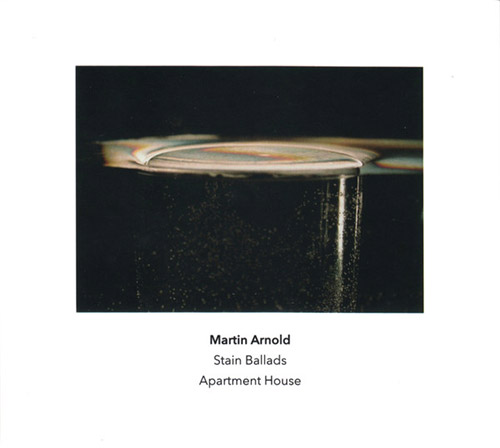
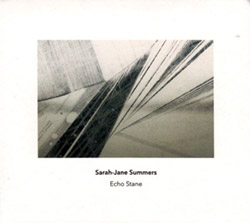
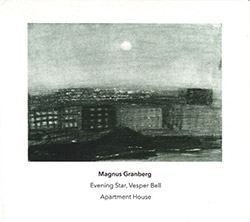
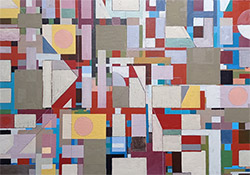




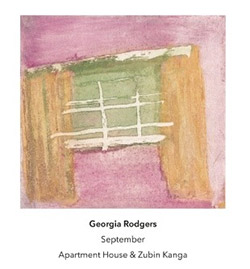

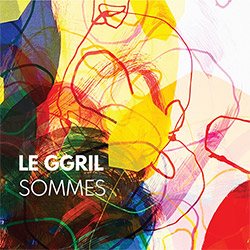
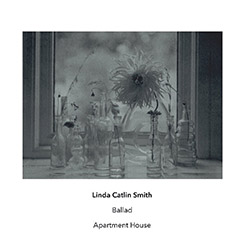
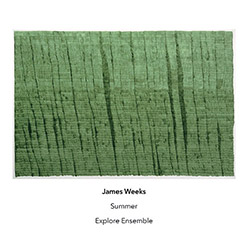
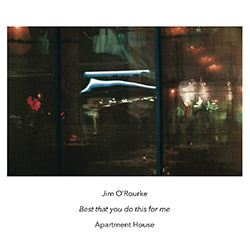









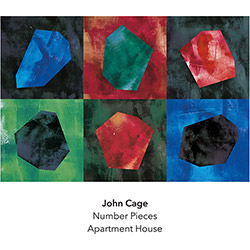


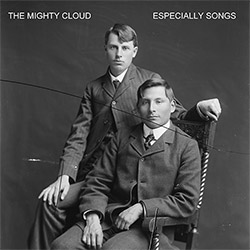




![BlueRing Improvisers: Materia [2 CDs]](https://www.teuthida.com/productImages/misc4/36513.jpg)








![Wheelhouse (Rempis / Adasiewicz / McBride): House And Home [VINYL]](https://www.teuthida.com/productImages/misc4/36462.jpg)
![+DOG+: The Light Of Our Lives [2 CDs]](https://www.teuthida.com/productImages/misc4/36009.jpg)


![Parker, Evan / Jean-Marc Foussat: Insolence [VINYL]](https://www.teuthida.com/productImages/misc4/36398.jpg)










![Deupree, Jerome / Sylvie Courvoisier / Lester St. Louis / Joe Morris: Canyon [2 CDs]](https://www.teuthida.com/productImages/misc4/36404.jpg)



![Eventless Plot | Haarvol: The Subliminal Paths [CASSETTE + DOWNLOAD]](https://www.teuthida.com/productImages/misc4/36232.jpg)










![Eventless Plot | Francesco Covarino: Methexis [CASSETTE + DOWNLOAD]](https://www.teuthida.com/productImages/misc4/36231.jpg)



![Das B (Mazen Kerbaj / Mike Majkowski / Magda Mayas / Tony Buck): Love [VINYL]](https://www.teuthida.com/productImages/misc4/36329.jpg)


![Eternities: Rides Again [CASSETTE]](https://www.teuthida.com/productImages/misc4/36247.jpg)
![Lopez, Francisco: Untitled (2021-2022) [2 CDs]](https://www.teuthida.com/productImages/misc4/36438.jpg)






![Money : Money 2 [2 CDs]](https://www.teuthida.com/productImages/misc4/35894.jpg)




![Klinga, Erik: Elusive Shimmer [VINYL]](https://www.teuthida.com/productImages/misc4/36258.jpg)
![CHANGES TO blind (Phil Zampino): Volume 9 - I Wave on a Fine Vile Mist [CD + DOWNLOAD]](https://www.teuthida.com/productImages/misc4/36061.jpg)

![Wallmart / Rubbish: Asset Protection [split CD]](https://www.teuthida.com/productImages/misc4/35900.jpg)


![+Dog+: The Family Music Book Vol. 5 [2 CDs]](https://www.teuthida.com/productImages/misc4/35897.jpg)
![Kuvveti, Deli : Kuslar Soyledi [CASSETTE w/ DOWNLOAD]](https://www.teuthida.com/productImages/misc4/36107.jpg)

![Brown, Dan / Dan Reynolds: Live At The Grange Hall [unauthorized][CASSETTE]](https://www.teuthida.com/productImages/misc4/36245.jpg)








![Palestine, Charlemagne / Seppe Gebruers: Beyondddddd The Notessssss [VINYL]](https://www.teuthida.com/productImages/misc4/36206.jpg)
![Palestine, Charlemagne / Seppe Gebruers: Beyondddddd The Notessssss [NEON GREEN VINYL]](https://www.teuthida.com/productImages/misc4/36207.jpg)

![Laubrock, Ingrid: Purposing The Air [2 CDs]](https://www.teuthida.com/productImages/misc4/35639.jpg)

![Yoko, Ono / The Great Learning Orchestra: Selected Recordings From Grapefruit [2 CDs]](https://www.teuthida.com/productImages/misc4/35841.jpg)









![Zorn, John / JACK Quartet: The Complete String Quartets [2 CDs]](https://www.teuthida.com/productImages/misc4/35609.jpg)

![Lonsdale, Eden: Dawnings [2 CDs]](https://www.teuthida.com/productImages/misc4/35480.jpg)



![Sorry For Laughing (G. Whitlow / M. Bates / Dave-Id / E. Ka-Spel): Rain Flowers [2 CDS]](https://www.teuthida.com/productImages/misc4/35985.jpg)

![Rolando, Tommaso / Andy Moor : Biscotti [CASSETTE w/ DOWNLOADS]](https://www.teuthida.com/productImages/misc4/36106.jpg)


![Electric Bird Noise / Derek Roddy: 8-10-22 [CD EP]](https://www.teuthida.com/productImages/misc4/35970.jpg)








![Elephant9 : Mythical River [VINYL]](https://www.teuthida.com/productImages/misc4/34624.jpg)



![Elephant9 with Terje Rypdal: Catching Fire [VINYL 2 LPs]](https://www.teuthida.com/productImages/misc4/35355.jpg)
![Deerlady (Obomsawin, Mali / Magdalena Abrego): Greatest Hits [VINYL]](https://www.teuthida.com/productImages/misc4/34876.jpg)







![Surplus 1980: Illusion of Consistency [CD]](https://www.teuthida.com/productImages/misc4/35069.jpg)
![Staiano, Moe: Away Towards the Light [VINYL + DOWNLOAD]](https://www.teuthida.com/productImages/misc4/35037.jpg)
![Coley, Byron: Dating Tips for Touring Bands [VINYL]](https://www.teuthida.com/productImages/misc4/17906.jpg)

![Lost Kisses: My Life is Sad & Funny [DVD]](https://www.teuthida.com/productImages/misc4/lostKissesDVD.jpg)